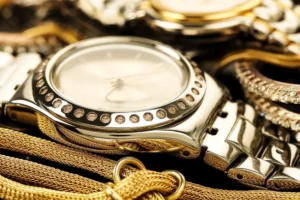There are two types of personal property according to the Texas Estates Code: Tangible personal property which requires a transfer of title such as a car, boat, or motor home, and tangible personal property which does not require the transfer of a title such as heirloom jewelry, family pictures, pieces of artwork, or items located in another item, such as the contents of a cedar chest.
How you handle these items and whether you mention each item in your will depends on whether you want a specific person to inherit the item, or you want your personal representative to distribute the property at his or her discretion.
Handling Your Personal Belongings in Your Will

For your personal belongings that require a transfer of title, you may want to have a beneficiary designated on your title so that it is clear that upon your death, the title to the item, such as a vehicle, is transferred to a specific heir. If you do this, you do not need to name the item in your will.
If you have not named a beneficiary on the title, you will then want to include that item in your will and name the person you want to receive that item.
For every piece of personal property, you want to leave to a specific person, you must name that person in your will. For example, if you want to leave your grand piano to your grandchild or a piece of art to a loved one who has admired it, you must say so specifically in your will.
Handling Your Personal Belongings in a Memorandum
If you do not care who the items go to, you can be general in your will and make a statement like “the contents of my home shall be divided according to a memo I leave.” The memo can list specific items that you want to leave to specific people, e.g. “I would like my pieces of art sold and the proceeds given to X charity.”
You could also say in the memo “the contents of my home shall be distributed according to the discretion of my executor.” This allows you to purchase new personal items without having to update your will every time you do so.
The Memorandum must be signed and dated and then acts as a codicil to your will. This allows you to update the memorandum without needing to execute a new will.
Contact the Reecer Law Firm for More Information
For more information about the best way to leave your personal belongings to your heirs, contact one of our estate planning attorneys at the Reecer Law Firm.
The founder and owner of The Reecer Law Firm, Dena Reecer, is Board Certified in Estate Planning and Probate Law by the Texas Board of Legal Specialization. Contact us for more information about how our attorneys can help you.
